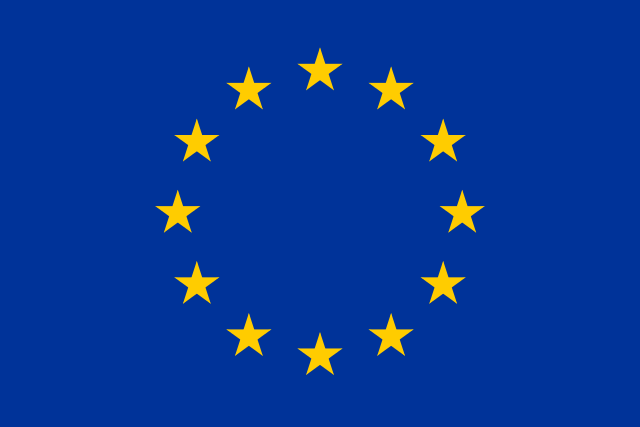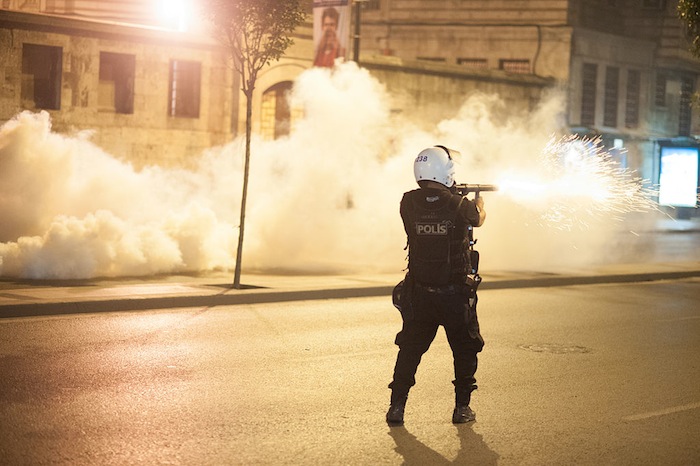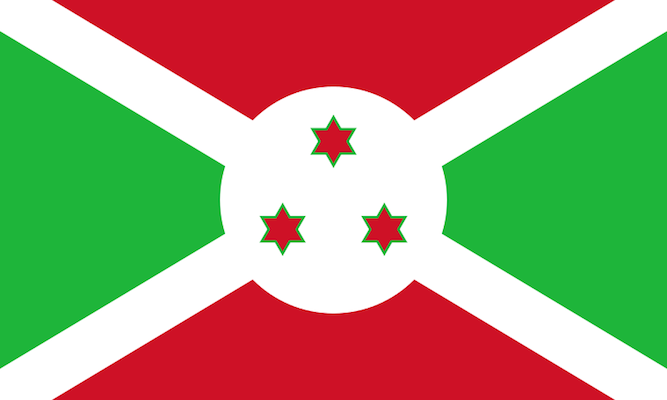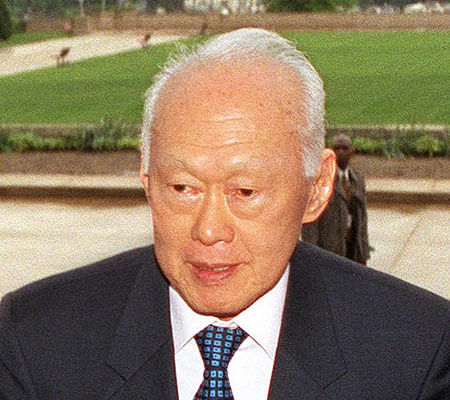Six months later, we are still no closer to a definitive answer on the question: “Burkina Faso’s Printemps Noir: A Black Spring or a fizzle?”
In other words, has the surprise popular/military ouster of Burkina Faso’s authoritarian president over a term limits dispute had any ripple effects across the rest of sub-Saharan Africa’s countries with long-serving leaders — many of whom are also currently trying to change their constitutions to seek additional terms? Will people be inspired to challenge attempts to revise term limits and nip their potential future strongmen’s careers in the bud?
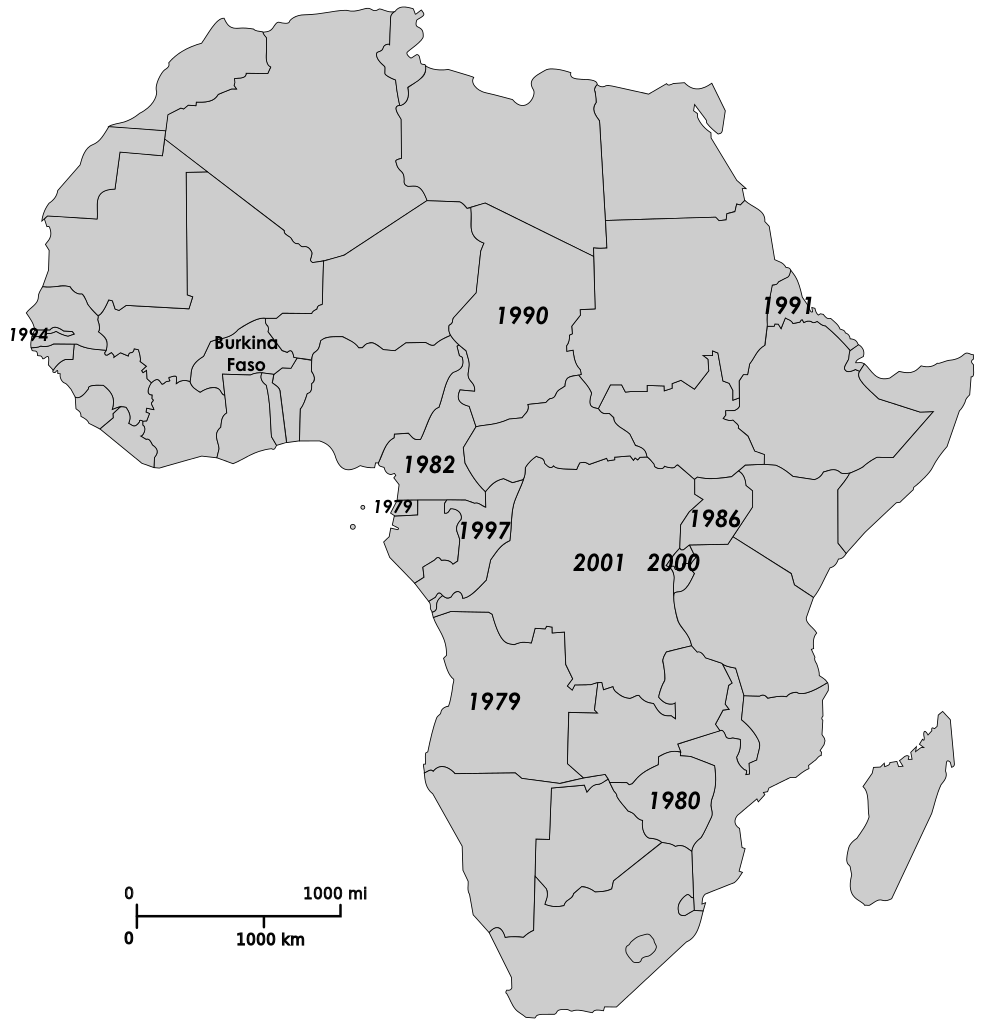
A partial map of the years that Sub-Saharan African strongmen took office, in relation to Blaise Compaoré’s 1987 coup in Burkina Faso. (Map labels by Arsenal For Democracy.)
In Burundi this week we got perhaps the clearest parallel so far as a major military coup attempt was made against the president after weeks of increasingly bloody protests over his planned third term. It’s currently still too early to tell what the outcome of that uprising will be, since the army was divided over the decision to intervene in the political sphere.
Fighting raged in the capital last night. Reuters:
“The coup attempt failed, loyal forces are still controlling all strategic points,” said Army Chief of Staff General Prime Niyongabo in a statement broadcast on state radio.
A Reuters witness reported a journalist at the state broadcaster had said there was still heavy gunfire being heard around the state television and radio station in the capital on Thursday morning. Another Reuters witness said loud blasts were heard in the capital.
Witnesses said rival factions of the armed forces, divided between supporters of the coup attempt and the president’s loyalists, were exchanging heavy machine gun and rocket fire around the state television and radio complex, which is held by the president’s supporters.
According to a pro-coup military source, the RTNB complex was attacked in the early hours of the morning after Burundi’s armed forces chief used state radio to announce that the coup had failed.
A journalist inside the complex confirmed heavy fighting raged through the early hours of the morning and after dawn, with heavy weapons including cannons and rockets being used.
Regardless of the outcome in Burundi, however, there is a bigger picture also still unresolved. Even beyond the “super-dicator” types — those who have ruled for 30-40 years and show no signs of budging or don’t even bother with real elections — there are almost a dozen wannabe-strongmen who are similarly trying to change the rules to contest semi-competitive elections and plan to coast to re-election on popularity or intimidation and join the ranks of the super-dictators.
The trends on the latter front appear to be quite unclear, with some countries and organizations showing positive signs and others making the same unfortunate decisions as we have just seen the president of Burundi undertake. An op-ed in Al Jazeera English summarized the state of play in the various countries with similar situations:
The forced resignation of Burkinabe President Blaise Campaore in October last year, following similar protests in Ougadougou is a case in point.
Perhaps that influenced President Thomas Yayi to accept the Benin constitutional court’s refusal to amend the constitution for a third term, and he has publicly stated that he will not seek re-election next year.
[…]
Meanwhile in the DRC there has already been strong opposition to President Joseph Kabila’s attempts to amend both the constitution and the electoral law, including from within his own party.
[…]
In other parts of the continent, the signals are mixed. In stark contrast to Burundi and DRC, in neighbouring Rwanda, two million people have petitioned parliament to amend the constitution in order to allow Paul Kagame to extend his rule for a third seven-year term in 2017.
[…]
Last month, Togo’s Faure Gnassingbe and Sudan’s Omar al-Bashir were both re-elected as their countries’ leaders, despite high questionable track records and notwithstanding protests against Faure’s third-term bid and an opposition boycott of the poll in Sudan, where Bashir has been in power since 1989.
[…]
However, the Economic Community of West African States (ECOWAS) looks set to change such apathy this week, when it will table a new clause that would prohibit presidents of member countries from ruling for more than two terms. It is also said to be considering adopting a new legal regime that will make all ECOWAS decisions immediately applicable and binding on member states.



